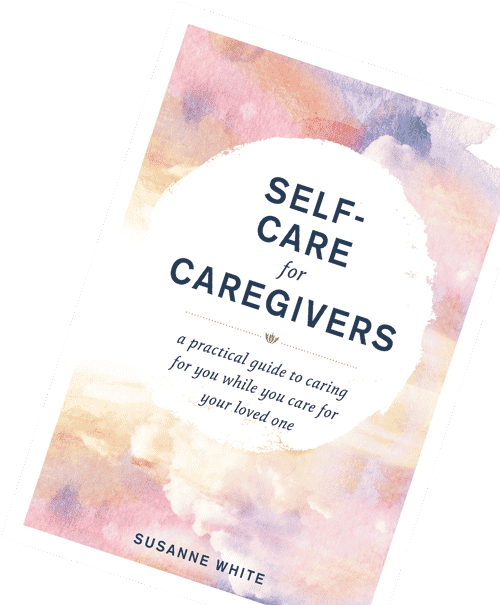NOW AVAILABLE!
Self-Care for Caregivers


Caregiver Warriors are responsible for the health and well being of those we care for. This includes any and all documents that protect and clearly designate the choices and wishes for the future and end of life decisions our loved ones have. These documents can be seen as confusing and overwhelming. Luckily, Roberta Arnone, Esq has been kind enough to explain the essential legal documents we should all be aware of.
By Roberta Arnone, Esq.
When you or someone you care about faces a life-threatening emergency, it is essential to have go-to documents that are ready-to-use at a moment’s notice. The Power of Attorney, Health Care Proxy and Living Will (Health Care Directive) are documents we can depend on.
None of us like to think about death, and legal documents can seem overwhelming. We imagine it is time-consuming and expensive to hire an attorney to explain and prepare them for us, so we tend to put it off. However, making sure you have directive documents for yourself and your loved ones is the first step in creating a realistic care plan. These documents are so easy to complete that most lawyers bundle them into the price of will preparation and many online providers make them inexpensively available. Having them drawn up and signed ahead of a health care crisis can save you time, energy and anguish.
Here are brief descriptions of each of these vital documents.
1.Power of Attorney
The power of attorney is a document that appoints another adult as your agent to make your non-medical decisions. You may choose all of the powers, some limited powers and even write in your own designated powers that are unique to you.
This helps avoid costly and time-consuming legal actions such as guardianship if these powers are not designated beforehand. After it is signed, it not does mean that you no longer have the ability to make your own decisions. The only thing that will change is that your agent is now designated to help you. You may revoke a power of attorney by sending notice to your agent by certified mail. The General Power of Attorney does not expire unless you limit it.
2. Healthcare Proxy
The healthcare proxy is a power of attorney for your medical records. It allows a designated adult to discuss your condition with your physician to make informed decisions on your behalf. The person you choose for this role should be a family member or friend you trust who will make sure you receive the care you want.
3. Living Will (Health Care Directive)
This document states your wishes for end of life medical care, in case you cannot communicate them yourself. We each have a different view of life. Some want all available care to prolong it, while others feel that quality of life is most important and are not interested in life-prolonging procedures.
Without a healthcare proxy, the living will is quite limited. The two documents are so intertwined to be effective that there’s a trend of building the healthcare proxy right into the living will so it is not inadvertently omitted. This document then designates an adult to tell doctors which life support you wish (if any).
Here are some important quick tips.
✓ Use names of all parties exactly as they appear on their current photo ID
✓ Include mobile phone numbers in the healthcare proxy and living will
✓ Include the name, address and telephone number of the primary care physician
✓ Include successor agents on each form
✓ Give a copy of the two health-related directives to your primary care physician
✓ File the Power of Attorney at your bank (some have their own form)
✓ Keep an original set and save a copy online
✓ Seniors should contact their local bar association for free or low-cost legal services
Planning ahead is like packing an umbrella for your life. You are prepared for a sudden downpour. As the end of the year approaches, mark your calendar to take care of getting these documents in order sooner than later. Bring in the New Year worry and stress-free.
Roberta Arnone, Esq.
Neighborly Notary NYC
Roberta Arnone, Attorney at Law, P.C.

Become a Caregiver Warrior to receive my complimentary e-book. Bonus: get inspirational updates, useful information, and exclusive caregiving tips delivered directly to your inbox.
Thanks for explaining how living wills are used to communicate your wishes if you are unable to speak by yourself. Ever since she was a child, my aunt has suffered from strokes that have impaired her ability to speak over time. It may be best for her to create a living will if she is ever at a point where she can no longer communicate with others.
https://wrightlawidaho.com/estate-litigation-will-contests-and-trust-disputes/
I’m so glad you found this helpful. I think it’s always good to have living wills, health care directives, health care and financial Power of Attorney documents in order and signed. It can save so much heartbreak later on. It’s hard enough when someone we love or care for becomes unable to tell us what they need or want. If we know ahead of time, we can always do the next right thing, making decisions that we feel good about because we have been given direction. I wish the very best for you and Aunt.